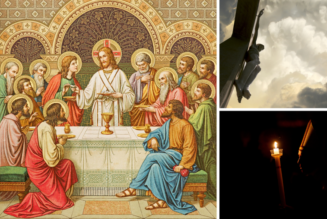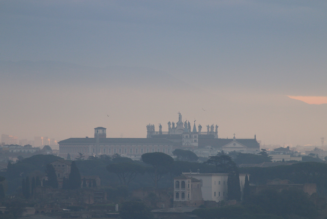
St. Augustine famously said, “Our hearts are restless until they find their rest in Thee,” but what exactly is the “restlessness” from which we’re being rescued?
I think Augustine was thinking of people like himself, who moved from philosophy to philosophy and their associated ways of living, never finding any of them satisfying. But we can feel restless, we can be restless, in all sorts of ways.
The 17th century mathematician-philosopher Blaise Pascal described one kind of restlessness I know well, and think afflicts many more people today than Augustine’s kind. He describes it in his “Pensees,” a collection of his notes for a book of apologetics he never got to write. (He died in 1662 at the age of 39. For more on his insights, read Pope Francis’s apostolic letter Sublimitas et Miseria Hominis.)
Modern restlessness
This restlessness he describes as the desire for “diversion,” constantly looking for ways to avoid facing the realities we don’t want to face. Chief among them, our unsatisfactory selves. “Being unable to cure death, wretchedness and ignorance,” Pascal writes, “men have decided, in order to be happy, not to think about such things.”
We move restlessly through life because, if we stop moving, the realities we don’t want to think about will push themselves into our thoughts. Realities like the knowledge that we will die, that we have not been the kind of people we should have been and wanted to be, that we have not done what we could have done, that we have gotten so much and not given enough back. Or like that memory of the time we were so cruel to a friend, were so cowardly or calculating or contemptuous, or otherwise failed in a way we still feel.
“The only thing which consoles us for our miseries is diversion, and yet this is the greatest of our miseries …,” Pascal writes. “But for that we should be bored, and boredom would drive us to seek some more solid means of escape, but diversion passes our time and brings us imperceptibly to our death.”
Pascal put this insight into some nice short sayings, like “We prefer the hunt to the capture” and “Only the contest appeals to us, not the victory.” And my favorite, “The sole cause of man’s unhappiness is that he does not know how to stay quietly in his room.”
Dangerous diversions
We can divert ourselves into what looks like happiness, but really isn’t. We’re not really happy, we’re tranquilized. Pascal gives as examples gambling and the theater — the kinds of things we expect. But we can divert ourselves in many ways.
We may face more danger of diversion than did the people of his day. His “theater” for us includes movies, sports, concerts, social media exchanges, even politics and religion. Anything can divert us from looking at ourselves.
Pascal remarks several times that people work to provide kings with distractions. We are kings in that sense: a great many people and society itself work hard to keep us diverted.
Society does not want people who can face seeing themselves as they are, because they might do something to change, and that will mean rejecting much that society depends on. Like buying lots of things they don’t need and instead paying critical attention to the society that encourages them to buy lots of things they don’t need.
Pascal had, I should say, a grim view of man’s “hollow and foul” heart and didn’t see the difference between a diversion and a proper entertainment. Whether an activity is for us one or the other depends on why we do it.
We aren’t necessarily hiding from ourselves or from God when we enjoy a baseball game with friends. Nor did he have any idea of neurodivergence and other influences that would make someone look from the outside like someone seeking diversion.
Seeking salvation
Pascal intended his analysis of diversion as an argument for belief in God, by pointing out that we need diversion to keep us from seeing how wretched we are. He believed we remember in some way our race’s past happiness and want the truth that will make us happy again. “The less man were diverted,” he writes, “the happier he would be, like the saints and God.”
The psalmist says, “Be still and know that I am God.” Pascal adds, “Be still and know that you are you.” Don’t divert yourself or let yourself be diverted. By knowing you are you, you may find yourself looking for the loving God who will save you from yourself.






